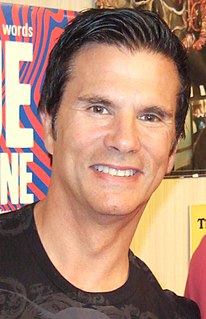A Quote by Elizabeth Cady Stanton
Everyone in the full enjoyment of all the blessings of his life, in his normal condition, feels some individual responsibility forthe poverty of others. When the sympathies are not blunted by any false philosophy, one feels reproached by one's own abundance.
Related Quotes
The person senses what it feels like to be free from inhibitions. At the same time he feels connected and integrated – with his body and, through his body, with his environment. He has a sense of well-being and inner peace. He gains the knowledge that the life of the body resides in its involuntary aspect. […] Unfortunately these beautiful feelings do not always hold up under the stress of daily living in our modern culture. The pace, the pressure and the philosophy of our times are antithetical to life.
Human beings consider themselves satisfied only compared to some other condition. A man who has owned nothing but a bicycle all of his life feels suddenly wealthy the moment he buys an automobile...But this happy sensation wears off. After a while the car becomes just another thing that he owns. Moreover, when his neighbor next door buys two cars, in an instant our man feels wretchedly poor and deprived.
It is natural for every man uninstructed to murmur at his condition, because, in the general infelicity of life, he feels his own miseries without knowing that they are common to all the rest of the species; and, therefore, though he will not be less sensible of pain by being told that others are equally tormented, he will at least be freed from the temptation of seeking, by perpetual changes, that ease which is no where to be found, and though his diseases still continue, he escapes the hazard of exasperating it by remedies.
As society is only possible if everyone, while living his own life, at the same time helps others to live; if every individual is simultaneously means and end; if each individual's well-being is simultaneously the condition necessary to the well-being of others, it is evident that the contrast between I and thou, means and end, automatically is overcome.
Ownership by delegation is a contradiction in terms. When men say, for instance (by a false metaphor), that each member of the public should feel himself an owner of public property-such as a Town Park-and should therefore respect it as his own, they are saying something which all our experience proves to be completely false. No man feels of public property that it is his own; no man will treat it with the care of the affection of a thing which is his own.
Life is more than thought: what a man feels, and what his senses awaken in him, are more indispensable to his life's fullness than subsequent reflection on their significance. Both Stirner and Nietzsche have elaborated Faust's opening speech in which he bemoans his wasted years in academia: this speech is Goethe's own impeachment of Kant and Hegel . Philosophy proceeds always under the risk of making a fetish of thinking.
We're looking at the singular condition of poverty. All the other individual problems spring from that condition... doesn't matter if it's death, aid, trade, AIDS, famine, instability, governance, corruption or war. All of that is poverty. Our problem is that everybody tries to heal each of the individual aspects of poverty, not poverty itself.
A man of understanding, a man who understands himself and others, always feels compassion. Even if somebody is an enemy you have compassion toward him because a man of understanding can understand the viewpoint of the other also. He knows why the other feels as he feels, he knows why the other is angry, because he knows his own self, and in knowing that, he has known all others.






































